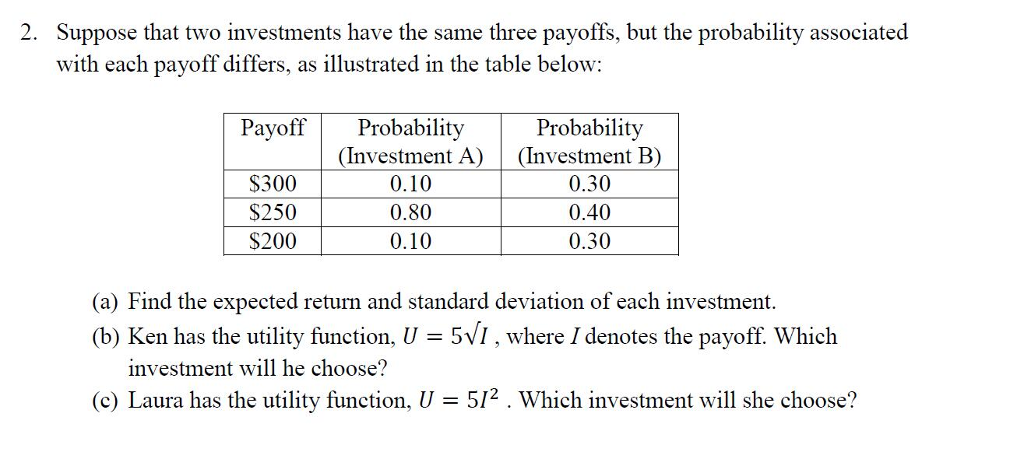

- #SHORT PAYOFF VS PROFIT FORWARD PROFESSIONAL#
- #SHORT PAYOFF VS PROFIT FORWARD FREE#
(TurboTax Free Edition customers are entitled to payment of $30.) Excludes TurboTax Business. If we are not able to connect you to one of our tax professionals, we will refund the applicable TurboTax federal and/or state purchase price paid. We will not represent you before the IRS or state agency or provide legal advice.
#SHORT PAYOFF VS PROFIT FORWARD PROFESSIONAL#
Audit Support Guarantee: If you receive an audit letter based on your 2021 TurboTax return, we will provide one-on-one question-and-answer support with a tax professional as requested through our Audit Support Center for audited returns filed with TurboTax for the current tax year (2021) and the past two tax years (2020, 2019). 100% Accurate Expert-Approved Guarantee: If you pay an IRS or state penalty (or interest) because of an error that a TurboTax tax expert or CPA made while providing topic-specific tax advice, a section review, or acting as a signed preparer for your return, we'll pay you the penalty and interest. (TurboTax Online Free Edition customers are entitled to payment of $30.) Limitations apply. 
Maximum Refund Guarantee / Maximum Tax Savings Guarantee - or Your Money Back: If you get a larger refund or smaller tax due from another tax preparation method, we'll refund the applicable TurboTax federal and/or state purchase price paid.100% Accurate Calculations Guarantee: If you pay an IRS or state penalty or interest because of a TurboTax calculation error, we’ll pay you the penalty and interest.Limited interest and dividend income reported on a 1099-INT or 1099-DIV.

A simple tax return is Form 1040 only (without any additional schedules).
TurboTax Free Edition: $0 Federal + $0 State + $0 To File offer is available for simple tax returns only with TurboTax Free Edition. Increase your tax knowledge and understanding all while doing your taxes. Whether you have stock, bonds, ETFs, cryptocurrency, rental property income or other investments, TurboTax Premier has you covered. If you use married filing separate filing status, however, the annual net capital loss deduction limit is only $1,500. Any excess net capital loss can be carried over to subsequent years to be deducted against capital gains and against up to $3,000 of other kinds of income. If you have an overall net capital loss for the year, you can deduct up to $3,000 of that loss against other kinds of income, including your salary and interest income. If you have $2,000 of short-term loss and only $1,000 of short-term gain, the net $1,000 short-term loss can be deducted against your net long-term gain (assuming you have one). Net losses of either type can then be deducted against the other kind of gain. So, short-term losses are first deducted against short-term gains, and long-term losses are deducted against long-term gains. Losses on your investments are first used to offset capital gains of the same type. The good news is, when you use TurboTax Premier, we'll do the hard work for you to help ensure that your taxes are calculated accurately. (When these rules apply, the child’s gains may be taxed at the parents’ higher rates.) Long-term gains from stock sales by children under age 19-under age 24 if they are students-may not qualify for the 0% rate because of the Kiddie Tax rules. Gains on real estate that are attributable to depreciation-since depreciation deductions reduce your cost basis, they also increase your profit dollar for dollar-are taxed at 25%, unless you're in the 10% or 15% bracket. Long-term gains on collectibles-such as stamps, antiques and coins-are taxed at 28%, unless you're in the 10% or 15 % or 25% bracket, in which case the 10% or 15% rate or 25% rate applies. There are exceptions, of course, since this is tax law. For low-bracket taxpayers, the long-term capital gains rate is 0%. Long-term gains are taxed at 15% or 20% except for taxpayers in the 10% or 15% bracket. Long-term gains are treated much better. Short-term profits are taxed at your maximum tax rate, just like your salary, up to 37% and could even be subject to the additional 3.8% Medicare surtax, depending on your income level. The tax rate you pay in 2021 depends on whether your gain is short-term or long-term.







 0 kommentar(er)
0 kommentar(er)
